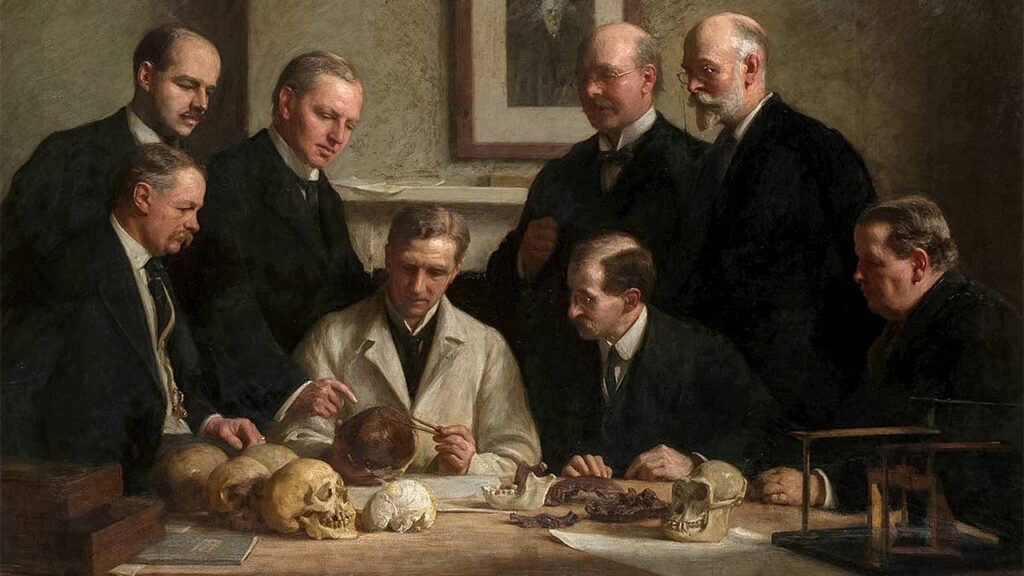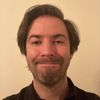A Response to "Rethinking Higher Education in America"
Institutions of higher education are dealers in ideas. The methodological base they provide for their students becomes a lens for subject matter.

I was tasked with reading the Christopher Lucas book, Crisis in the Academy: Rethinking Higher Education in America, and providing a critique and analysis for my American Higher Education class while enrolled in graduate studies.
The word “crisis” is the central pivot point for Lucas' work. The splitting up of the book into explicit sections, e.g, entrance standards, curriculum and accountability—to name just a few—leaves the reader wondering, “Just where is the crisis? Is it one of these areas? All of them?”
Ultimately, Lucas' method is to present empirical data and arguments from many different areas and leave it to the reader to decide where the crisis lies. All the aforementioned book sections are important in illuminating issues in higher education, but if left to pick one, overarching issue that permeates every institution, only one area is left: the methodology behind the curriculum.
Institutions of higher education are ultimately dealers in ideas. The methodological base they provide for their students becomes a lens for subject matter. Debates will and still do rage on regarding particular empirical content, but if students are to become life-long learners, then they need to be able to exercise a faculty common among every person: reason.

To a certain extent teachers will always be dealers in empirical content and ideas for interpreting that content, i.e, providing a context, but ultimately it is up to the student to decide what to accept and what to reject. Economist Murray Rothbard notes this distinction between the who (teachers) and the what (an individual's reason):
Who is to establish the alleged truths about man? The answer is not who but what: man's reason. Man's reason is objective, i.e., it can be employed by all men to yield truths about the world. To ask what is man's nature is to invite the answer. Go thou and study and find out! … difference of opinion is no excuse for discarding all sides to a dispute; the responsible person is the one who uses his reason to examine the various contentions and make up his own mind. He does not say a priori, “a plague on all your houses!” The fact of man's reason does mean that error is impossible. Even such “hard” sciences as physics and chemistry have had their errors and their fervent disputes. No man is omniscient or infallible—a law, by the way, of man's nature.
Methodological Differences
Perhaps the biggest roadblock toward coherent curriculum in modern academia is the confusion over methodology in specific areas of study. Lucas notes this:
The American university had committed itself to all that is objective, quantifiable, precise, and publicly verifiable, in process cosigning larger questions of human meaning, purpose, or significance to the realm of the unanswerable and insignificant. Hence institutions of higher education had tacitly acceded to the popular belief that so-called ultimate questions are nonintellectual, subjective, and therefore not amendable to reasoned analysis or discourse.
What Lucas is alluding to is the dominance of one form of methodology for two separate and very distinct areas: natural science and social science. Proponents of this “one methodological size fits all” approach have things backward. Methodology depends on the subject at hand. In the case of natural sciences, the subject matter, e.g, molecules and stones, do not choose their course of action. But at the forefront of the social sciences is always acting man.
Indeed, the word “science” does not refer to a particular methodology at all. As Rothbard illustrates, science means scientia, i.e. correct knowledge.

With Rothbard's definition of science in hand it becomes clear that the term “science” can apply to many courses of study. What is the focus in any academic discipline is a correct body of knowledge that equips a student with the ability to reason. Again, it must be stressed that methodology must change with the subject matter.
Far from trying to be more of a “hard” science and emulate the methodologies of the natural sciences, the social sciences—such as sociology, economics, political science—must turn toward the areas often ruled off limits and thought by many to be subjective, i.e, what Lucas reefers to as “ultimate questions.” Lucas says:
The idea that a university should be a place for scientific research and scholarship took hold rather quickly in the United States. Such was the prestige associated with empirical “science” that before long virtually every academic discipline and subspecialty was aspiring to be as “scientific' as possible … Indeed, the cachet of academic respectability attained by any given subject or field within the university seemed to depend directly on the success with which it was able to take on the quantitative appearances and modes of investigation associated with hard science.
Is the goal of a “soft” science—say, economics—to follow the empiricist tradition and predict occurrences of phenomenon? Or is the goal, as Ludwig Lachmanm states, “to make the world around us intelligible in terms of human action and the pursuit of plans”?

These two positions are obviously at odds with one another—the former being quantitative, the latter being qualitative. Philosopher Peter Winch illustrates the differences:
The important question for us is: in what circumstances could one say that one had understood this sort of behaviour? … Weber often speaks as if the ultimate test were our ability to formulate statistical laws which would enable us to predict with fair accuracy what people would be likely to do in given circumstances … [But] we might well be able to make predictions of great accuracy in this way and still not be able to claim any real understanding of what those people were doing. The difference is precisely analogous to that between being able to formulate statistical laws about the likely occurrence of words in a language and being able to understand what was being said by someone who spoke the language … [A] man who understands Chinese is not a man who has a firm grasp of the statistical probabilities of the various words in the Chinese language.
Another philosopher, Roderick T. Long, illustrates this problem with a simple example:
Let's say that in early 2001 I formulate a theory that there is a Constant Tolkienian Force in the universe that produces a Tolkien film every year … So I test it in 2001, 2002, and 2003. Lo and behold, my theory works each year! (2001 brings The Fellowship of the Ring, 2002 brings The Two Towers, and 2003 brings The Return of the King.) But unless I pay some attention to the true explanation of this sequence of film releases, I'll be caught by surprise when the regularity fails for 2004.
What both examples illustrate is that when our subject matter involves acting man and his choices, the methodology of the natural sciences—empiricism—must be be abandoned. The reader may be asking, “Well then, what is left? Is everything merely subjective? Are we to go down the path of hermeneutics?”
The term “hermeneutics” originally was used in relation to the interpretation of texts—mainly biblical and literary. Now, it has become—in many forms—an ultra-subjectivist discipline ruling out the objective.
For a superb critique of this latter version of hermeneutics, see Rothbard's excellent article, "The Hermeneutical Invasion of Philosophy and Economics."

Clearly [an ultra-subjectivist perspective that rules out the objective] cannot be so for it was stated earlier that a coherent curriculum is of utmost importance in higher education. Our attention must be turned toward philosophy and rules of thought that make the world around us intelligible. A unifying thread can be found in a general theory of human action — praxeology.
Praxeology: The Logic of Choice
Ludwig von Mises, a member of the “Austrian School” of economics, defines praxeology as,
The science of human action that strives for universally valid knowledge is the theoretical system whose hitherto best elaborated branch is economics. In all of its branches this science is a priori, not empirical. Like logic and mathematics, it is not derived from experience; it is prior to experience. It is, as it were, the logic of action and deed.
The significance of the praxeological position — which is best developed in economic theories and laws — is that there are certain aspects of reality that hold true irrelevant of time and place. Gone is the notion of polygolism — that “every social class, every nation, race, or period of history is equipped with a logic that differs from the logic of other classes, nations, races, or ages.”
Praxeology asserts that the logical structure of the mind is the same for every individual. The axioms, i.e., starting points in deductive reasoning, are not arbitrary, but a priori. The starting point of all praxeological thinking is: man acts using means to attain ends. Since action uses means to attain ends, then it should be realized that all action is purposeful.
Praxeology is not concerned with involuntary responses, e.g, reflexes from certain stimuli. This cannot be refuted and is not open to empirical testing.

As economist Hans-Hermann Hoppe says, "A priori theory trumps and corrects experience (and logic overrules observation), and not vice-versa."
Indeed, even if one wanted to try and falsify this a priori proposition they could not. For in trying to deny the proposition, i.e., by saying, “Man does not act,” they would be caught in a performative contradiction. As philosopher A.J. Ayer notes:
The principles of logic and mathematics are true universally simply because we never allow them to be anything else. And the reason for this is that we cannot abandon them without contradicting ourselves, without sinning against the rules which govern the use of language, and so making our utterances self-stultifying.
Economist Frank Knight succinctly illustrates the importance of recognizing that a priori concepts bridge the gap between the mind and physical reality:
The apparent universal necessity, or a priori validity of any proposition which seems to have it, is far less mysterious than is often represented. It may be true to say that universally necessary propositions are “forms of thought,” or laws of intelligence and mind; but such a statement does not mean at all that they are not truths about the real objective world. Rather the a priori necessity of any proposition is simply, and in this writer's view, correctly, explained by the fact that our minds lack any power of really creative imagination or original intuitive knowledge of superempirical reality, and not by the fact that we possess any such powers. Any statement which “must” be true under all conditions is simply a statement of a fact about the world which is so universal and fundamental for experience that we cannot “think it away,” or imagine a situation in which it would not be true.
But what of a priori propositions? Are they not just tautologies, i.e., devoid of empirical content? Are we merely playing language games? Hoppe gives a detailed list that reveals, far from being absent in the social sciences, a priori theories are quite prevalent:
Every action is aimed at improving an actor's subjective well-being above what it otherwise would have been. A larger quantity of a good is valued more highly than a smaller quantity of the same good. Satisfaction earlier is preferred over satisfaction later. Production must precede consumption. What is consumed now cannot be consumed again in the future. If the price of a good is lowered, either the same quantity or more will be bought than otherwise. Prices fixed below market clearing prices will lead to lasting shortages. Without private property in factors of production there can be no factor prices, and without factor prices cost-accounting is impossible … Interpersonal conflict is possible only if and insofar as things are scarce … Property and property titles are distinct entities, and an increase of the latter without a corresponding increase of the former does not raise social wealth but leads to a redistribution of existing wealth.
Yet, in the social sciences, how many students are exposed to praxeology or any of the aforementioned a priori theories? This is where the problem of coherent curriculum in the social sciences lies. Most students are presented with two options: (1) adopt the methodology of the natural sciences and try to “measure” success by predictions or (2) adopt a hermeneutic path and simply argue a subjective point.
The French economist Frederic Bastiat continually pointed out this phenomenon, i.e, in the field of social sciences reason lead astray can be the most damaging because the means to correct it is authoritative — the law.
What is interesting about teachers, e.g., in a political science or sociology class that stress hermeneutic base, is that students are required to have X number of references to justify their subjective viewpoint.
How does this encourage a use of one's reason? If anything, it sends the following signals to the student: either (a) “Load up the paper with references!” or (b) Use the bare minimum amount of references.
Indeed, how is it that a student could go through an entire undergraduate and graduate program in political science without learning and applying any economic theories? Why must economics students sit through countless calculus and matrix algebra courses, but never take a course in philosophy?

Rothbard notes how odd this process (with a heavy stressing on math) is for modern economic students:
Simply to develop economics verbally, then to translate into logistic symbols, and finally to translate the propositions back into English, makes no sense and violates the fundamental scientific principle of Occam's razor, which calls for the greatest possible simplicity in science and the avoidance of unnecessary multiplication of entities or processes.
The true crisis lies in the ideas we choose to adopt and apply not only as students, but also as teachers. Mises — by way of his emphasis in the field of economics — provides an apt summation of the quantitative-qualitative rift between the natural and social sciences:
Economics, like logic and mathematics, is a display of abstract reasoning. Economics can never be experimental and empirical. The economist does not need an expensive apparatus for the conduct of his studies. What he needs is the power to think clearly and to discern in the wilderness of events what is essential from what is merely accidental.
